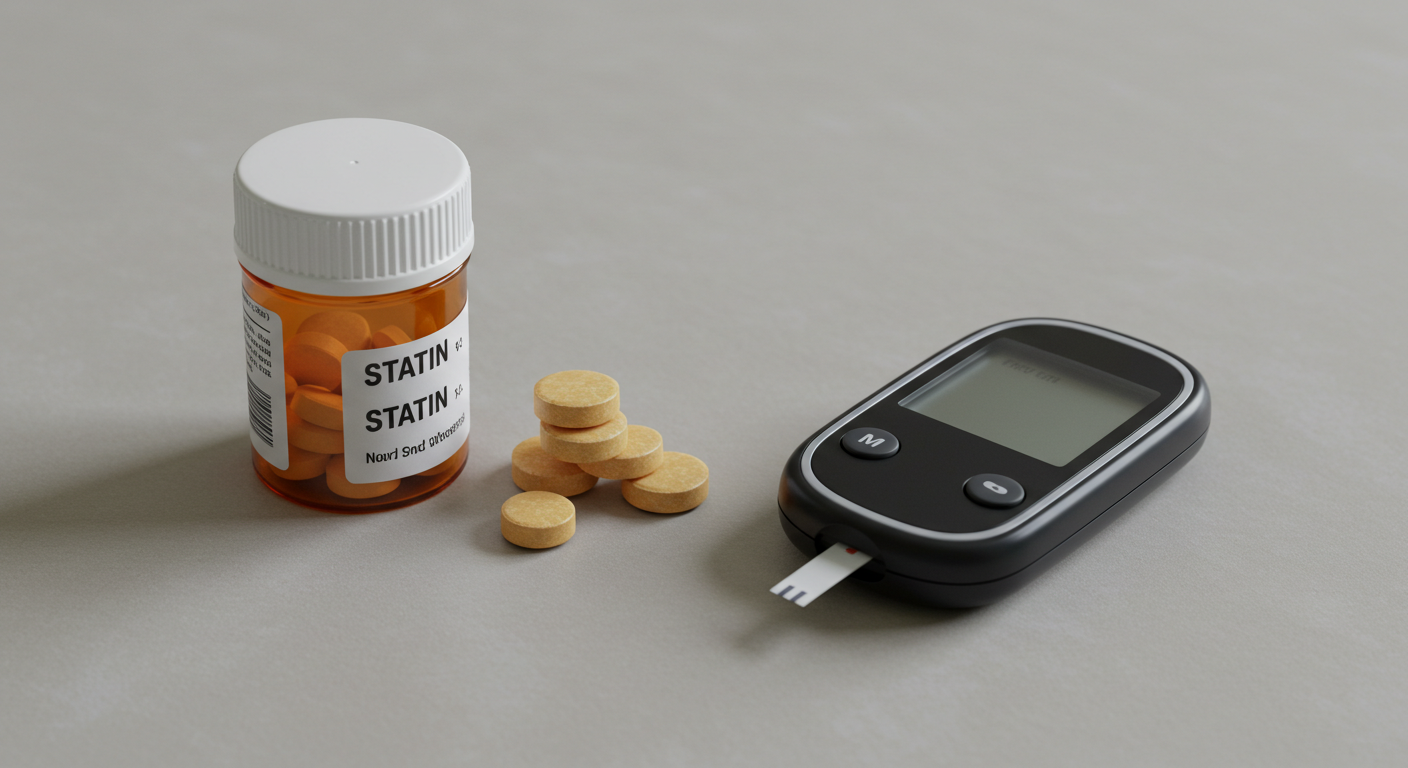Dr. Kumar’s Take:
This review confirms that statins slightly increase the risk of developing type 2 diabetes—especially in people already at risk. For every 100 to 200 people who take a statin for 5 years, one extra person may develop diabetes. While that risk is small, it’s real.
Key Takeaways:
✔ Statins may raise diabetes risk by 10–20%, especially at high doses.
✔ The risk is higher in people who already have risk factors for diabetes.
✔ Lifestyle changes like diet and exercise can help cancel out this diabetes risk.
Brief Summary:
This large research review looked at how statins, drugs used to lower cholesterol, might raise the risk of type 2 diabetes. The study also looked at how other cholesterol drugs compare, like PCSK9 inhibitors and bempedoic acid, which may have less or no effect on blood sugar.
Study Design:
This was a review of many large randomized trials and genetic studies that examined the connection between statins and type 2 diabetes. The authors also looked at how other cholesterol-lowering drugs compared in terms of diabetes risk and weight changes. Genetic data helped support the link between statins and small increases in blood sugar and weight.
Results:
✔ Statins caused about 1 extra case of diabetes per 100–200 people over 5 years.
✔ The SPARCL trial (atorvastatin) showed the highest diabetes risk, mostly in older adults.
✔ Most of the diabetes risk may be related to mild weight gain.
✔ Other drugs like PCSK9 inhibitors and bempedoic acid showed little or no diabetes risk in trials.
✔ Even with the diabetes risk, statins saved more lives by preventing heart disease.
How Statins Might Raise Diabetes Risk
Statins may slightly raise blood sugar and cause small weight gain. Some scientists think they could also affect how well insulin works or how insulin is made. But these effects are small and not fully understood. Importantly, the increase in diabetes risk was more likely in people who already had risk factors like being overweight or having prediabetes.
Related Studies and Research
Triglyceride/HDL Ratio and Heart Disease Risk – Investigates how the TG/HDL ratio relates to metabolic health and cardiovascular outcomes.
ASCVD Risk Equation May Overestimate Heart Disease – Reviews concerns about traditional risk scores potentially overstating cardiovascular risk.
Coronary Artery Calcium and Statin Allocation – Discusses how CAC can refine statin decision-making, especially in borderline-risk individuals.
Statins and Neuromuscular Side Effects – Explores lesser-discussed side effects of statins, including muscle-related issues.
HOPE-3 Trial: Rosuvastatin in Primary Prevention – Examines statin benefits in individuals at intermediate cardiovascular risk.
(Links to internal blog posts can go here as you build your study cluster.)
Frequently Asked Questions
Should I be worried about diabetes if I start a statin?
For most people, the risk is very small—especially if you don’t already have diabetes risk factors. Talk to your doctor, and keep up with healthy habits.
How can I lower my diabetes risk if I take a statin?
Walking more, eating better, and losing a little weight can help reduce your chance of developing diabetes—even if you’re on a statin.
Are there alternatives to statins?
Yes, drugs like ezetimibe, PCSK9 inhibitors, and bempedoic acid are used in certain people. These may have lower diabetes risks but are often more expensive or used in combination with statins.
Do statins raise blood sugar in people who already have diabetes?
The increase in HbA1c (a measure of blood sugar over time) is usually very small and not a major concern.
Conclusion
Statins are one of the most studied medications for preventing heart disease in high risk patients. While they may slightly raise the risk of type 2 diabetes, this risk is small and can often be managed or prevented with lifestyle changes.


